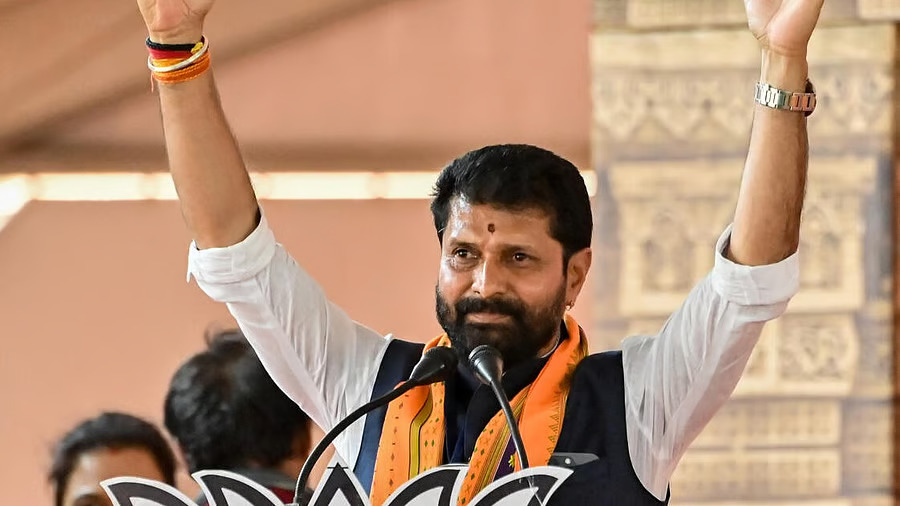In a sharp and politically charged statement, senior BJP leader and former minister C.T. Ravi has called upon the Karnataka state government to recover the massive public expenditure incurred during the previous caste census initiative. His comments come amid growing controversy surrounding the renewed efforts to conduct a fresh caste-based survey across the state—a move that has not only sparked political friction but also raised serious questions about public accountability and government priorities.
The Background: What Is the Caste Census?
The caste census in Karnataka is a socio-political initiative aimed at collecting comprehensive data on various castes and communities living in the state. Originally commissioned during a previous Congress-led administration, the survey was expected to provide data that could help formulate inclusive policies, ensure equitable distribution of government benefits, and offer statistical insight into the social fabric of Karnataka.
The survey reportedly cost over ₹160 crore in public funds. However, the final report was never made public, and its methodology was criticized by several dominant caste groups such as the Lingayats and Vokkaligas. Allegations of data manipulation and politically motivated categorization further clouded the process.
C.T. Ravi’s Strong Rebuke
Addressing the media recently, C.T. Ravi voiced serious concerns over the decision by the current state government to carry out a fresh caste census. He questioned the rationale behind conducting the exercise again when such a vast amount of public money had already been spent with no transparent outcome.
In his words, “Why is the government choosing to waste public resources on repeating the same process? The original census cost more than ₹160 crore—are we to ignore that and spend more just for political optics?”
Ravi went on to urge the government to initiate recovery of funds already spent if the data is not going to be used, asserting that public funds should not be squandered on redundant or politically motivated exercises.
The Cost of Redundancy
The earlier caste census, carried out by the Karnataka State Commission for Backward Classes, involved meticulous data collection over months and engaged thousands of field workers. Despite the scale and investment, the findings have never been fully released, reportedly due to political discomfort surrounding the demographic revelations that may impact electoral dynamics.
Now, with the Congress government gearing up to launch a fresh caste survey, the budget implications are once again under the scanner. Critics argue that initiating a new survey—without even reviewing or correcting the previous one—is not only fiscally irresponsible but also undermines the credibility of government institutions.
Political Intent vs. Public Interest
C.T. Ravi and other opposition leaders contend that the government’s push for a new caste census is a veiled attempt to consolidate vote banks ahead of future elections. The caste data, if made public, could significantly influence the reservation framework, allocation of development funds, and overall political narratives in the state.
According to Ravi, “This is not about development or inclusion; it’s about divisive politics. If the original survey was flawed, the responsible officials should be held accountable. Otherwise, use the data you already have or admit it was a waste of taxpayer money.”
He further questioned why the current administration is choosing to ignore the past investment and instead opt for a duplicate exercise. For him and his party, it signals a larger problem of misplaced priorities and governance failures.
Public Reaction and Civil Discourse
Ravi’s remarks have stirred debate not just among politicians but also among civil society members and economists. While some agree with the idea of recovering funds if the earlier project is being discarded, others argue that data accuracy is crucial—especially when it comes to historically underrepresented communities.
Some activists argue that the caste census, though controversial, is a necessary tool for advancing social justice. However, they too demand that the process be carried out transparently, scientifically, and without political interference.
Amidst these conversations, one sentiment stands out: the people of Karnataka deserve transparency. Whether it’s the previous data or the proposed survey, the public must know why decisions are being made and how funds are being spent.
Call for Accountability
C.T. Ravi’s demand to recover the ₹160+ crore spent on the earlier caste census is, at its core, a demand for accountability. The public has a right to question where their tax money is going. If the previous census results are unusable due to flawed execution, those responsible should be held liable. If the data is usable, then it must be made public and put to productive use.
Governments, regardless of political affiliation, have a responsibility to handle state resources judiciously. Arbitrary decisions to discard previous work and reinvest in new projects without a valid justification not only waste money but also erode public trust.
What’s Next?
As the state gears up for further deliberation on the matter, all eyes will be on the Karnataka cabinet’s decision—whether to approve a fresh survey or to reassess the viability of the existing one. Meanwhile, the public, media, and opposition continue to demand transparency, accountability, and above all, responsible governance.
The question remains: Will the government honor the taxpayers’ money already spent, or will it plunge ahead with another costly exercise in the name of political calculus?
In the end, the outcome of this debate will set a precedent—not only for Karnataka but for other states considering similar surveys. And it will speak volumes about how Indian democracy balances political ambition with fiscal responsibility.
Sponsored
FACTS Transcripts
Apply for a University document anywhere
https://www.factstranscript.com
Quick Transcripts for popular Universities, check your University name now and get started. We help you to get your transcript application online which is accepted for use of IRCC.
No DD, NO Paperwork. 100% Authentic, Reliable.
FACTS Transcripts Charges · Reviews · Assam Universities · Home · Know your University










